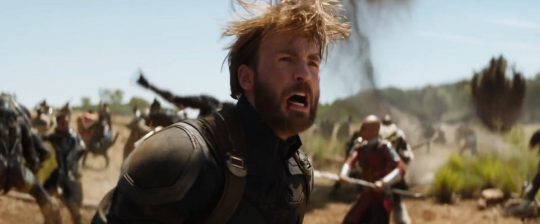On the heels of a record-smashing opening weekend for Avengers: Endgame, it seems appropriate to broach the subject of superheroes and subsidiarity, and specifically an intriguing lesson about subsidiarity in the Marvel Cinematic Universe. (Sorry, this post will not be about the would-be superhero ‘Subsidiarity Man.’)
In deference to those who weren’t among the people who contributed to the $1.2 billion opening, I’ll wait to post a bit more about Avengers: Endgame and specifically how it relates to the development of Thanos’ character following Avengers: Infinity War. For now, I want to highlight something else from Infinity War, specifically the Battle of Wakanda.

Matthew Ader breaks down the battle, and specifically Captain America’s shortcomings. There’s lots to ponder here, but specifically I want to focus on Ader’s entirely accurate criticism that “Captain Rogers failed to keep any sort of reserve force back from the fighting.” The exception is Scarlet Witch, who was tasked with guarding Vision. But, as Ader notes, “re-tasking a unit from a critical role is not the same as having a dedicated reserve force.”
This idea of a reserve force goes directly to the concept of subsidiarity. The word subsidiarity is derived from the Latin word subsidium meaning help or aid. The original context was that of the Roman army, which held a unit in reserve for precisely the reasons Ader indicates. At a key point in battle the rested reserve could be employed to turn the tide of battle, to keep a retreat from turning into a rout, or to help aid in the cleanup afterward and pursue the enemy.
The principle of subsidiarity in this sense requires something to be available in reserve, a surplus of sorts beyond what is actually engaged in a particular moment or context. This is the idea behind the exposition of the 8th commandment that requires a person to “work faithfully so that I may share with those in need.” To be able to help and share, you need a surplus beyond mere subsistence for yourself. In the case of battle, you need a reserve force of some kind, and this mistake has predictable results in the finale of Infinity War.
So even superheroes have something to learn from subsidiarity, and as great as Captain America is, he isn’t infallible.

